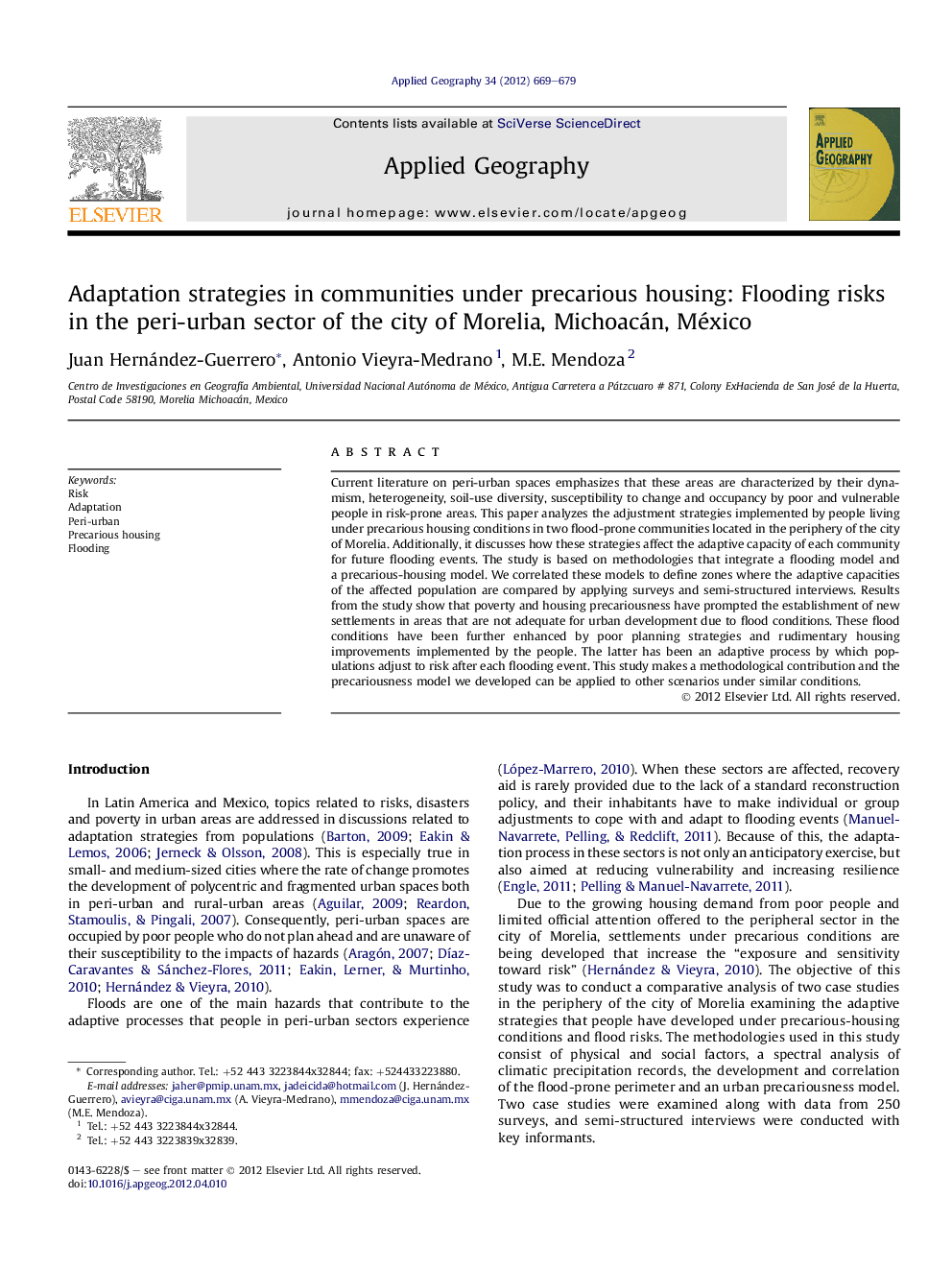| Article ID | Journal | Published Year | Pages | File Type |
|---|---|---|---|---|
| 83469 | Applied Geography | 2012 | 11 Pages |
Current literature on peri-urban spaces emphasizes that these areas are characterized by their dynamism, heterogeneity, soil-use diversity, susceptibility to change and occupancy by poor and vulnerable people in risk-prone areas. This paper analyzes the adjustment strategies implemented by people living under precarious housing conditions in two flood-prone communities located in the periphery of the city of Morelia. Additionally, it discusses how these strategies affect the adaptive capacity of each community for future flooding events. The study is based on methodologies that integrate a flooding model and a precarious-housing model. We correlated these models to define zones where the adaptive capacities of the affected population are compared by applying surveys and semi-structured interviews. Results from the study show that poverty and housing precariousness have prompted the establishment of new settlements in areas that are not adequate for urban development due to flood conditions. These flood conditions have been further enhanced by poor planning strategies and rudimentary housing improvements implemented by the people. The latter has been an adaptive process by which populations adjust to risk after each flooding event. This study makes a methodological contribution and the precariousness model we developed can be applied to other scenarios under similar conditions.
Graphical abstractFigure optionsDownload full-size imageDownload as PowerPoint slideHighlights► We examined floodable areas in the urban periphery with levels of precariousness. ► Five levels of precarious housing in urban contours were identified. ► Strategies and adaptive implements toward floods are described. ► The adaptive strategies are limited and adjustment measures are fragile. ► People living under precarious conditions can only establish temporary adaptations.
